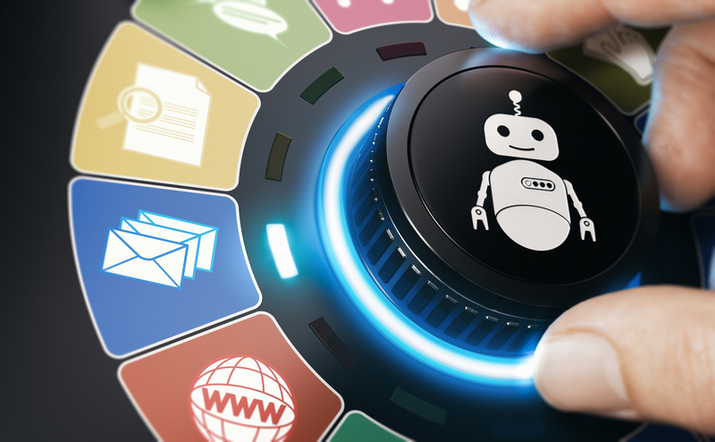
 Data Structure
Data Structure Networking
Networking RDBMS
RDBMS Operating System
Operating System Java
Java MS Excel
MS Excel iOS
iOS HTML
HTML CSS
CSS Android
Android Python
Python C Programming
C Programming C++
C++ C#
C# MongoDB
MongoDB MySQL
MySQL Javascript
Javascript PHP
PHP
- Selected Reading
- UPSC IAS Exams Notes
- Developer's Best Practices
- Questions and Answers
- Effective Resume Writing
- HR Interview Questions
- Computer Glossary
- Who is Who
What is Python, and what is it used for?
As you've heard, python is one of the most well-known programming languages. Two-thirds of the developers who now use the language enjoy it and intend to keep using it, according to a study conducted by Stack Overflow last year. Why, though, is it so well-liked? What does it serve?
Python is a versatile programming language that can create virtually any form of software. It may be utilised to create servers, corporate applications, websites, AI, and more.
What is Python?
What is Python, for what purposes, and what tasks can I carry out with Python? In contrast to HTML, CSS, and JavaScript, Python is a general-purpose, object-oriented programming language developed by Guido van Rossum. This implies that, among other things, it can be used for back-end development, software development, data research, and developing system scripts (automation).
A crucial component of Python's philosophy is "readability." For a cleaner, less cluttered look, it seeks to reduce the number of code blocks (blocks of source code text) and increase the amount of white space. It is a flexible language that functions on various platforms, which takes us to...
What is Python Used For?
Learning Python is a popular and in-demand talent. But what is the purpose of Python programming? A few of the areas it may be used in were previously briefly mentioned; we've elaborated on these and other Python examples below. Python is useful for ?
Fintech and the financial industry

When employing developers, programmers, and engineers, numerous sectors were surveyed by HackerRank in 2016(opens in a new tab). The results of the survey were published. Python was the leader in the FinTech field.
Learning Python and becoming a Python developer would be a wise move in the correct direction if you're interested in working as a software developer in the financial business. How many real-world applications are there?
Business applications

Business applications like Tryton and Odoo are built on Python. These solutions may handle accounting, inventory, customer relationship management, and other duties and are utilised for corporate growth.
To put it simply, Python handles labour-intensive tasks for many firms. As a result, Python is now being used by more and more companies due to its usability and scalability.
Data Analytics

Python programming is used in data analytics, a field that is also rapidly expanding and is similar to AI and machine learning. We now produce more data than ever before. Therefore we need someone who can collect, handle, and organize it.
Analytics and data science make sense with Python. Data analysis can be completed quickly and simply, thanks to the language's user-friendliness, adaptability, and support. When dealing with vast amounts of information.
Automation or scripting

Python can be used to automate routine processes so you can work more efficiently. The technique of writing computer code for these automated processes is known as scripting. Automation in programming can carry out basic math operations, transform files, check for issues across several files, and remove duplicate data.
Even complete novices may use Python to automate simple computer tasks like renaming files, finding and downloading internet content, or sending emails or SMS regularly.
Everyday tasks

Programmers and data scientists do not just use Python. Learning Python can increase job opportunities for people who work in less data-intensive industries like journalism, running a small business, or social media marketing. Python might also make some of a non-daily programmer's tasks more efficient. Here are a few examples of tasks you could automate with Python ?
Watch the prices of cryptocurrencies or stocks.
Remember always to bring an umbrella when it rains by getting a text message.
Make changes to your shopping list.
Naming a large batch of files
Conversion of text files to spreadsheets
Randomly assign family members to tasks
automatic completion of online forms
Blockchain

Python shows its strength whereas Javascript, Java, C++, and other languages may frequently be utilised for blockchain development. Python makes a strong case for itself for blockchain development, just as it does for other applications, due to its immense flexibility and usefulness, supported by its security.
Language development

Python's syntax and straightforward architecture have influenced the development of other programming languages. The syntax of Cobra, CoffeeScript, and Go is similar to that of Python.
Because of this, Python is a helpful entry-level language. If you're completely new to programming, knowing Python might make exploring other fields easier.
Why is Python So Popular?
Since its inception, the Python programming language has become increasingly popular due to its wide range of uses. Python is stable and flexible, offering answers to specialists from a variety of fields, not only coders. This explains how Python became so well-known across a wide range of sectors and highlights how simple and fundamental the language is to learn.
Conclusion
Python has a wide range of uses in just about any field you can think of. This article helped you understand the numerous real-world uses for this programming language in the fields that are now influencing our world.
Remember that studying Python will undoubtedly open numerous doors for you, regardless of your field or the one you aspire to be in. It will not go away. And it will keep doing so for a very long time. It has changed and enhanced our existing environment.

